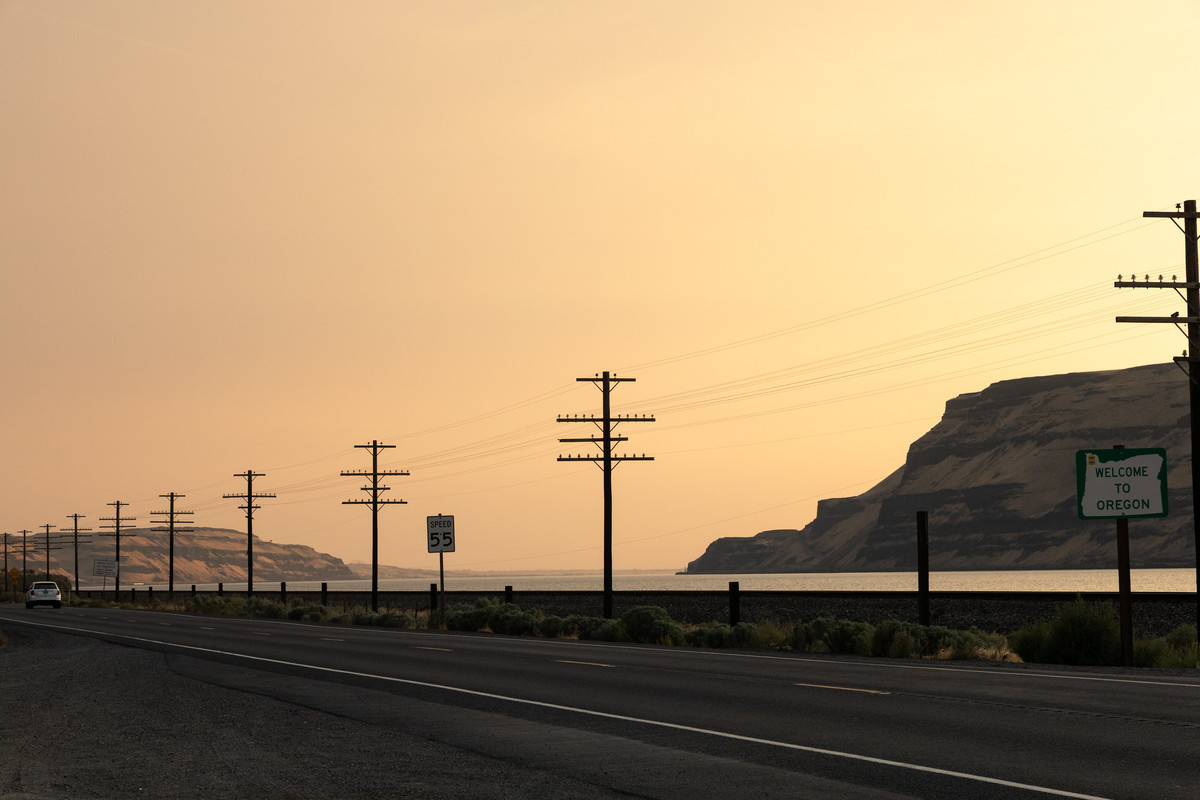Due to new regulations, food carts near The Branford P. Millar Library and Montgomery Residence Hall must connect to the county sewer system by year-end or leave. The campus administrators indicated they would not pay for this upgrade, and the food cart owners couldn’t afford it themselves, forcing them to vacate the space.
Portland State students have expressed concern about the food desertification of the west side of campus, which this closure would contribute to. PSU student Oliver Harris said he is committed to help in saving the food carts.
Citing concerns over the loss of a cherished gathering spot for students—as well as the affordable and convenient meal options which foster a sense of community among students, faculty and staff—Harris is organizing the launch of a petition which will implore the PSU administration to pitch in the money necessary to align the pod area with the county ordinance for gray water disposal, aka the dirty water left over from cleaning dishes and such.
“The presence of these food carts has been an integral part of our campus culture, providing not only affordable and convenient meal options but also fostering a sense of community and inclusivity among students, faculty, and staff,” Harris’ petition stated. “From the aromatic flavors of Middle Eastern cuisine at Sheesh Shawarma, to the comforting taste of home-cooked Chinese dishes at Home Taste LLC, to the vibrant and diverse offerings of Asian Fusion, and the unique and flavorful Lao cuisine served by Khao Niew, each of these immigrant-owned family businesses adds to the cultural tapestry of our campus.”
Another concerned student, R.S. Phillips, believed the estimated cost of this upgrade to be about $10,000–15,000. This investment would also go towards maintaining a revenue source for the college, as these carts pay the school a lease to operate in the pod area.
According to Phillips, the counterargument to paying this expense—that it would be a waste of money for such a small area of only four to five food carts—seems laughable.
PSU President Ann Cudd was recently asked about the food cart removal and the potential for students to help fundraise in a recent press conference. “I haven’t looked into it, but I certainly don’t want the carts to go away,” Cudd said. “So, you know, I am open to different solutions.”
In a recent report from University Communications, Jason Franklin—Associate Vice President for Planning, Construction and Real Estate at PSU—stated, “We know that the Library Carts are treasured by many, but when the county’s rules around wastewater disposal changed last year, it affected many food carts. We worked hard for several months to find a cost-effective solution to keep the carts in place but in the end we couldn’t make it work.”
Thavatsay has been the owner of the Khao Niew food cart for the last two years. He said the food cart was about more to him than just a means to make money. Not only do the food carts provide affordable food in an area of campus with less access to affordable food, but they also often help vulnerable students.
“This place is more to me than just money,” Thavatsay said. “It was personal, getting to know everybody here and stuff like that. And it broke my heart to hear the news like that, but yeah. We have been doing really good business here… I see [students] grow. I see them stressed out. I see everything. It’s personal.”
Suyan of the Home Taste LLC food cart said she has provided students facing food difficulties with free food. Even after making it clear she didn’t expect anything in return, those students would still come at the end of the month to pay her.
Multnomah County said the carts must relocate to an area with sewer access, so they can properly drain the gray water, but both Suyan and Thavastay said this relocation is untenable or impossible for them.
“PSU used to pay for the gray water tank that’s outside, and now it comes out of our pockets just to do that,” Thavatsay said. “It’s another expense that we have to pay. It’s just inconvenient. I think it’s very unfair. Now we’re doing this, and it’s still not, we’re not… doing anything wrong, because we’re still pumping it out, and they’re still disposing it to a proper area.”
Thavatsay said other food cart pods have steep rent and strict regulations, requiring pod owners to fork over some control of their business.
Suyan said she is unsure of where to go after spending so much time at her location on campus. “I don’t know where to move,” Suyan said. “I’ve been here a long time, and I spent a lot of money here.”
The owners said they enjoy PSU’s safety and community and consider themselves an integral part of the community. They said they want to continue to operate their carts and serve the community, but the campus administrators are either unable or unwilling to give them the resources that they need to continue their operations.
“I really like it here because I feel like PSU is like a safe zone here,” Thavatsay said. “[People] don’t vandalize it or do graffiti on our cart… That’s why I really love it here, because we have 24-hour Portland State University police that patrols the area. So I feel very safe here. I’m pretty sad about it. I’m not even mad. It’s more sad than anything, that we have to pick up and leave. I really like it here.”
Students like Harris said they are ready and willing to mobilize support for these food carts and pressure the campus administration to pitch in for the necessary renovations to save this vital community space and source of diverse dining options.
“These food carts are more than just places to grab a quick bite—they are cherished gathering spots where friendships are forged, ideas are exchanged, and memories are made,” Harris’ petition stated. “They represent the culinary heritage and traditions of various cultures, offering students an opportunity to experience flavors from around the world without leaving campus. It is imperative that we take action to ensure the continued presence of these food carts on our campus. That is why I am calling on you to join me in advocating for the installation of gray water drains and supporting the food carts’ right to remain here. Together, we can make a difference and preserve this vital aspect of our college experience.”






